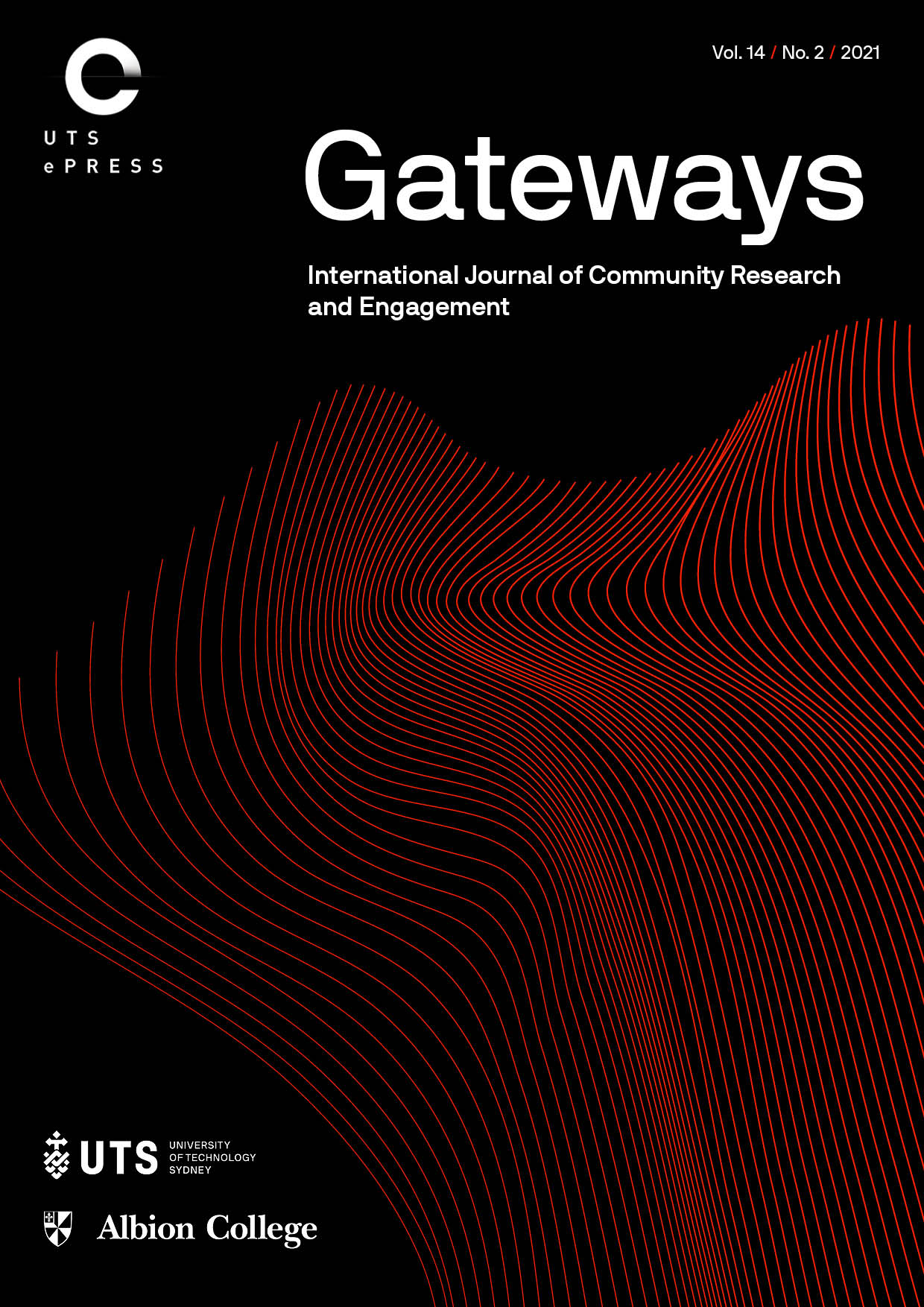Promiscuous Care in Movement-Based Research: Lessons Learned from Collaborations in Manhattan's Chinatown
Main Article Content
Abstract
Decolonial and feminist studies scholars have long recognised the intricate ways in which the personal and academic are deeply interwoven and that the co-production of knowledge is essential for social transformation. This article examines the cultural organising of the Chinatown Art Brigade, an intergenerational collective of artists, activists, writers, educators and practitioners driven by the fundamental belief that cultural, material, and aesthetic modes of production have the power to combat gentrification. Specifically, I situate the collective within a longer lineage of Asian American cultural organising in Manhattan Chinatown and draw from years of movement-based research as a member of the collective. Incorporating personal reflection and interviews conducted with brigade members, this article speaks to how the themes of power, temporality and affectivity show up in movement-based research. How can we think more capaciously about academic and non-academic collaboration, to push the boundaries and explore new possibilities that honour the time, expertise and trauma of directly impacted communities? In reflecting on my work with the Chinatown Art Brigade, I discuss the nuances of intergenerational co-production of knowledge and interrogate how a feminist ethics of promiscuous care can uncover new possibilities for collaboration between cultural workers, organisers and movement-based scholars within and beyond the neoliberal academy.
Article Details
Issue
Section
Authors who submit articles to this journal from 31st March 2014 for publication, agree to the following terms:
a) Authors retain copyright and grant the journal right of first publication with the work simultaneously licensed under a Creative Commons Attribution License that allows others to share and adapt the work with an acknowledgement of the work's authorship and initial publication in this journal.
b) Authors are able to enter into separate, additional contractual arrangements for the non-exclusive distribution of the journal's published version of the work (e.g., post it to an institutional repository or publish it in a book), with an acknowledgement of its initial publication in this journal.
c) Authors are permitted and encouraged to post their work online (e.g., in institutional repositories or on their website) prior to and during the submission process, as it can lead to productive exchanges, as well as earlier and greater citation of published work (See The Open Access Citation Advantage Service). Where authors include such a work in an institutional repository or on their website (ie. a copy of a work which has been published in a UTS ePRESS journal, or a pre-print or post-print version of that work), we request that they include a statement that acknowledges the UTS ePRESS publication including the name of the journal, the volume number and a web-link to the journal item.
d) Authors should be aware that the Creative Commons Attribution (CC-BY) License permits readers to share (copy and redistribute the work in any medium or format) and adapt (remix, transform, and build upon the work) for any purpose, even commercially, provided they also give appropriate credit to the work, provide a link to the license, and indicate if changes were made. They may do these things in any reasonable manner, but not in any way that suggests you or your publisher endorses their use.
For Volume 6 (2013) and before, the following copyright applied:
Articles published by UTSePress are protected by copyright which is retained by the authors who assert their moral rights. Authors control translation and reproduction rights to their works published by UTSePress. UTSePress publications are copyright and all rights are reserved worldwide. Downloads of specific portions of them are permitted for personal use only, not for commercial use or resale. Permissions to reprint or use any materials should be directed to UTSePress.
